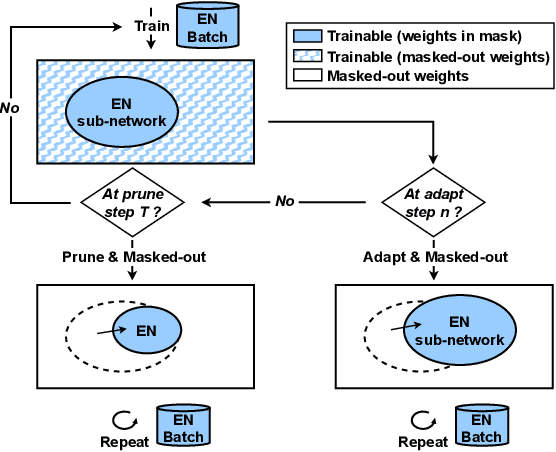Dynamic ASR Pathways: An Adaptive Masking Approach Towards Efficient Pruning of A Multilingual ASR Model
Paper and Code
Sep 22, 2023



Neural network pruning offers an effective method for compressing a multilingual automatic speech recognition (ASR) model with minimal performance loss. However, it entails several rounds of pruning and re-training needed to be run for each language. In this work, we propose the use of an adaptive masking approach in two scenarios for pruning a multilingual ASR model efficiently, each resulting in sparse monolingual models or a sparse multilingual model (named as Dynamic ASR Pathways). Our approach dynamically adapts the sub-network, avoiding premature decisions about a fixed sub-network structure. We show that our approach outperforms existing pruning methods when targeting sparse monolingual models. Further, we illustrate that Dynamic ASR Pathways jointly discovers and trains better sub-networks (pathways) of a single multilingual model by adapting from different sub-network initializations, thereby reducing the need for language-specific pruning.
 Add to Chrome
Add to Chrome Add to Firefox
Add to Firefox Add to Edge
Add to Edge